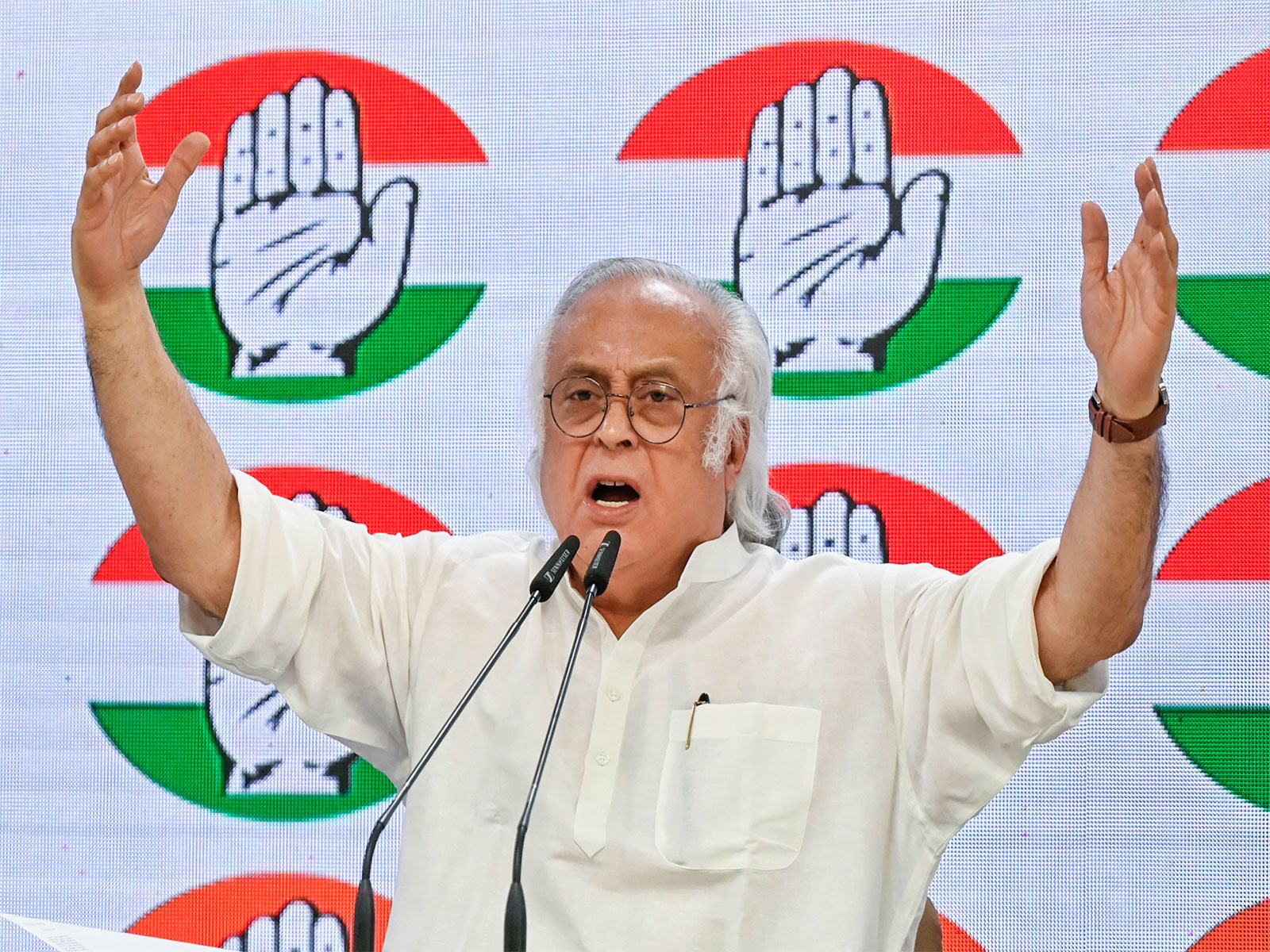Supreme Court strikes down Electoral Bonds scheme; Cong hails verdict, BJP says it was brought for transparency
Feb 15, 2024

New Delhi [India], February 15 : The Supreme Court on Thursday delivered a unanimous verdict, striking down the Electoral Bonds scheme as unconstitutional. While the Opposition parties hailed the Apex court decision, the ruling Bharatiya Janata Party said that the scheme was brought in for transparency in electoral funding.
A five-judge bench of Chief Justice of India, DY Chandrachud, Justices Sanjiv Khanna, BR Gavai, JB Pardiwala and Manoj Misra delivered a unanimous verdict. The bench was delivering judgement on a batch of pleas challenging the legal validity of the Central government's Electoral Bonds Scheme, which allows for anonymous funding to political parties.
The bench said that the petitions raised two main issues: whether amendments are violative of the right to information under Article 19(1)(a) and whether unlimited corporate funding violated free and fair elections.
The CJI while reading out his judgement said that the Supreme Court holds that anonymous electoral bonds are violative of Right to Information and Article 19(1)(a).
The Supreme Court said that information about corporate contributors through Electoral Bonds must be disclosed as the donations by companies are purely for quid pro quo purposes.
Rajya Sabha MP and former Congress leader Kapil Sibal called the SC decision "a ray of hope for democracy".
He called the Electoral Bonds scheme as the "brainchild" of late BJP leader Arun Jaitley.
"This is a huge ray of hope not just for a, b or c political party but for democracy itself. It's a huge ray of hope for the citizens of this country," said Sibal.
"This whole scheme, which was the brainchild of my late friend Arun Jaitley, was choreographed to enrich the BJP. Because everybody knew that the BJP was in power and that any donations through the electoral bond scheme would come to the BJP," said Sibal.
Congress president Mallikarjun Kharge said that on the day of the launching of the Electoral Bonds scheme in 2017, the Congress party had called it undemocratic.
In a post on X, Kharge said "We welcome the decision of the Supreme Court today, which has struck down this 'Black Money Conversion' scheme of the Modi Govt, calling it "Unconstitutional". We remember how the Modi Govt, PMO and FM bulldozed every institution - RBI, Election Commission, Parliament and Opposition to fill BJP's coffers. No wonder, 95% of the funding under this scheme was received by BJP."
Former Congress president Rahul Gandhi said that it was proved that the BJP government had made Electoral Bonds as a medium of commission and corruption.
He alleged that the same PM Modi who claimed he would not let the country be "sold out", actually sold airports, mines, and others in return for Electoral Bonds.
Congress MP Jairam Ramesh told ANI, "This judgement is like a storm. Through this, the SC has proved that the Narendra Modi government is a 'suit-boot-loot-jhooth' government. The electoral bond scheme was illegal and unconstitutional. This also proves that on the one hand Modi government honours those who donate money, but on the other hand, it insults the 'annadata' farmers."
Addressing a press conference, party leader Pawan Khera pointed out that in 2017, when the Electoral Bonds Scheme was first announced, the Indian National Congress was the first political party to condemn it.
"Those present will recall how the RBI had cautioned the government that the bonds could become a route for money laundering," Khera said.
Karnataka Deputy CM DK Shivakumar said that he fully saluted the Supreme Court for this brave decision. The country needs a wave of change.
Congress MP Manish Tiwari said that the decision by the Supreme Court should be welcomed by all right-minded people who believe in probity in public life.
"Supreme court ordering the SBI, the operator of Electoral Bonds Scheme to provide all the data to the Election Commission and the EC to publish it on its website is a welcome decision," Tiwari said.
BJP MP Ravi Shankar Prasad said that the Electoral Bond Scheme was brought in for a laudable objective.
"The Electoral Bond Scheme was brought in for a laudable objective: to bring in transparency in electoral funding, and to reduce the inflow of cash during elections. Even the donors wanted secrecy... This is not the only effort PM Narendra Modi had brought about to bring more transparency into the election process," he said.
The Communist Party of India (Marxist) hailed the verdict of the Supreme Court striking down the electoral bonds scheme and said the "unscrupulous scheme designed to finance the ruling party by anonymous corporate donors" has been completely scrapped.
Party general secretary Sitaram Yechury told ANI said that CPI-M had moved the apex court against the scheme.
"CPI-M was the petitioner, the only political party who had the locus standi to argue against the electoral bonds. As a matter of principle, we are the only party that did not accept electoral bonds. We consider electoral bonds as a legalisation of political corruption," Yechury said.
In a separate but concurring opinion in the Electoral Bonds case, Justice Sanjiv Khanna highlighted significant data related to contributions via such bonds. He observed that a majority of these contributions were directed towards parties holding power at both the national and state levels.
Justice Khanna was part of the five-judge Constitution bench which struck down the Centre's Electoral Bonds scheme. He referred to the data which showed that the lion's share of the contributions came from corporate sources.
Justice Khanna said, "The claim of privacy by a corporate or a company, especially a public limited company would be on very limited grounds, restricted possibly to protect the privacy of the individuals and person responsible for conducting the business and commerce of the company."
Justice Khanna further wrote, "It will be rather difficult for a public (or even a private) limited company to claim a violation of privacy as its affairs have to be open to the shareholders and the public who are interacting with the body corporate/company. This principle would be equally, with some deference, apply to private limited companies, partnerships and sole proprietorships."

















